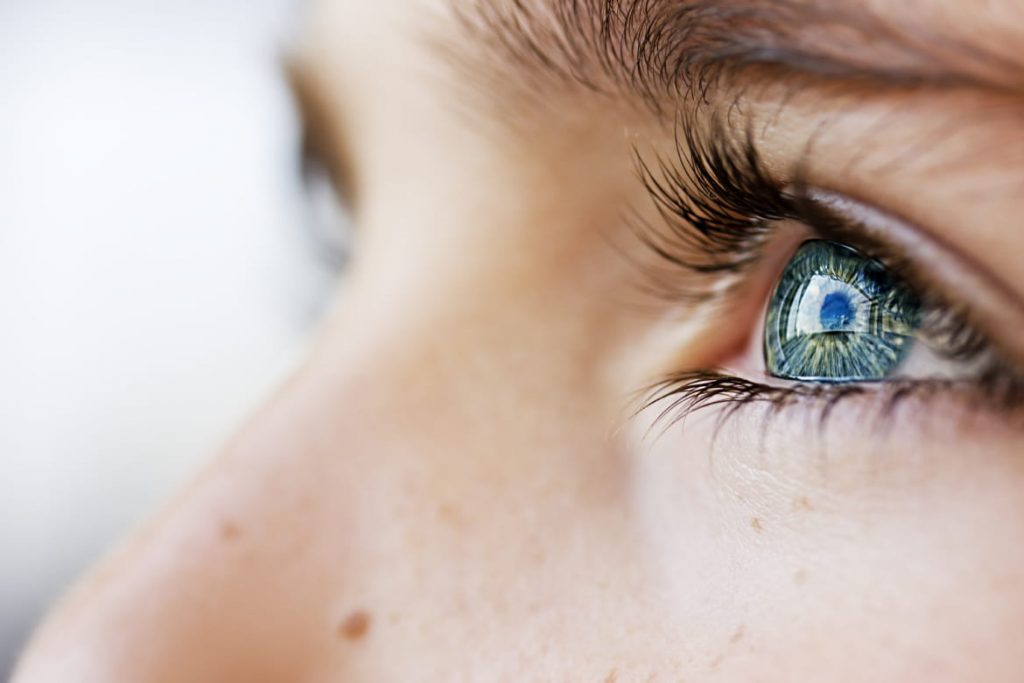If you noticed small spot floating in front of your eye you should concern your doctor because what type of spot is there that doctor can understand well.
Doctor will check properly and give you a best treatment for this. Also you can have medication for better eye health which you can buy from Theyavue.com.
Overview
Eye floaters are spots in your vision. They may look like black or brown spots, strings, or tombstones that move around when you move your eyes and appear to move away when you try to look straight at them.
Most eye floaters are caused by age-related changes that are caused by the jelly-like substance (vitreous) inside your eyes becoming more fluid.
The microscopic fibers inside the glass clump together and can cast small shadows on your retina. The shadows you see are called floaters.
Contact an eye specialist right away if you notice a sudden increase in eye floaters – especially if you also notice slight flashes or lose your peripheral vision.
These could be symptoms of an emergency that needs immediate attention.
Symptoms Of Eye Floaters
Symptoms of eye floaters may include:
- Tiny shapes in your vision that appear as dark spots or knobs, transparent strings of floating material
- The spots move when you move your eyes, so when you try to look at them, they quickly move out of your field of view
- The spots are most noticeable when you look at a plain bright background, such as a blue sky or a white wall.
- Small sizes or strings that eventually settle down and move out of line of sight
When To See A Doctor
Contact an eye specialist immediately if you notice:
- More Eye Floaters Than Usual
- Sudden Onset Of New Floaters
- Flashes Of Light In The Eye Similar To Floaters
- Blindness on either side or side of your vision (peripheral vision loss)
These painless symptoms can be caused by a retinal tear, with or without retinal detachment – a vision-threatening condition that requires immediate attention.
Causes Of Eye Floaters
Eye floaters can occur as a result of the normal aging process or other diseases or conditions:
Age-related eye changes: As you age, the vitreous or jelly-like substance that fills your eyeballs and helps maintain their round shape changes.
Over time, the vitreous partially liquefies—a process that pulls it away from the inner surface of the eyeball. As glass shrinks and shrinks, it sticks and hardens.
This debris blocks some of the light passing through the eye, causing tiny shadows on your retina that are seen as floaters.
Swelling in the back of the eye: Posterior uveitis is inflammation of the layers of the uvea at the back of the eye.
This condition can cause the release of inflammatory debris into the vitreous seen as floaters. Posterior uveitis can be caused by infection, inflammatory diseases, or other causes.
There is blood in the eye. Bleeding in the vitreous can have many causes, including diabetes, high blood pressure, blocked blood vessels and injury. Blood cells are seen as floaters.
Torn retina: Retinal tears can occur when a sagging vitreous tugs on the retina with enough force to tear it.
Without treatment, a retinal tear can lead to retinal detachment – an accumulation of fluid behind the retina that causes it to detach from the back of your eye.
Untreated retinal detachment can cause permanent vision loss.
Eye surgery and eye medicines: Some medicines that are injected into the glass pane can cause air bubbles to form.
These bubbles are seen as shadows until your eye absorbs them. Some vitreoretinal surgeries add bubbles of silicone oil to the vitreous which can also be seen as floaters.
Risk Factors
Factors that can increase your risk of floaters include:
- Age over 50
- Nearsightedness
- Eye trauma
- Complications from cataract surgery
- Diabetic retinopathy
- Eye inflammation
